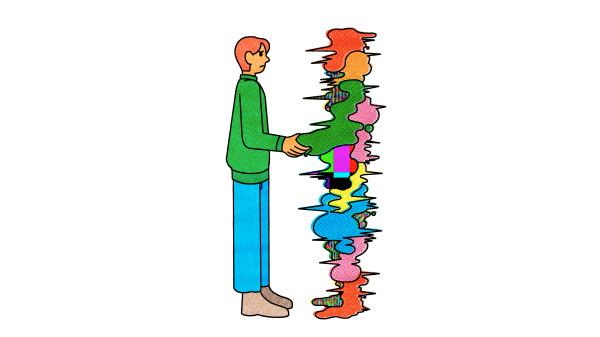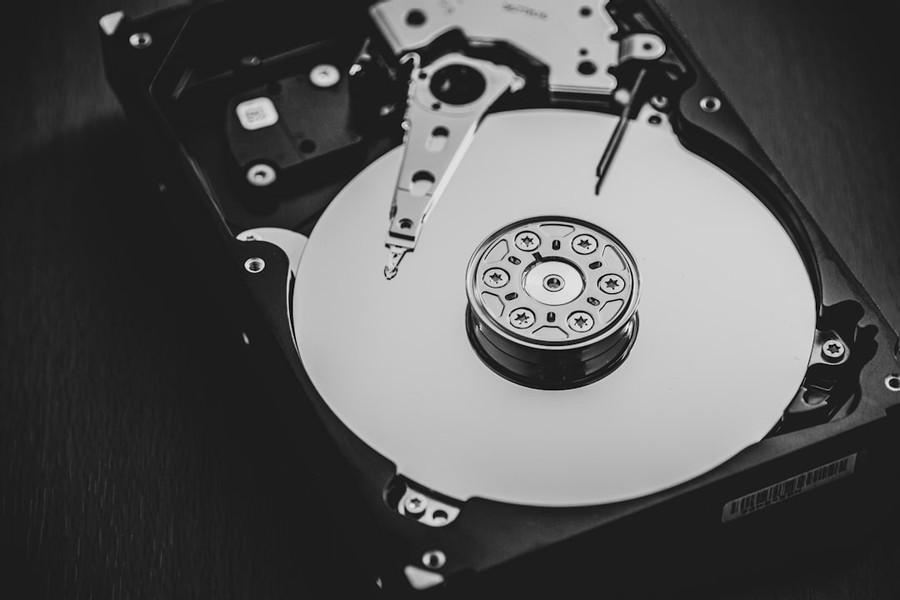Explore the World's Best Ideas
Join today and uncover 100+ curated journeys from 50+ topics. Unlock access to our mobile app with extensive features.
You Will Lose All Material Possessions
All worldly possessions are prone to attrition and decline. The more you have, the more your life becomes devoted to the vigilant, custodial work of maintenance and repair. This is why so many spiritual traditions advise against becoming attached to material things.
Ancient philosophers said that the physical world is inferior to the unchanging realm of the immaterial, that we should not become entranced by the elusive objects here on earth but look instead to the higher, intangible things (virtue, relationships, intellectual pursuits) that are immune to the inexorable wear and tear of time.
3
9 reads
Data Is Already Non-Physical And Resembles Spiritual Stuff
If it seems odd to think of files and personal data as “possessions,” it’s because they appear to already belong to the spiritual realm.
Information has no visible substance. It’s not composed of matter or energy, at least not in the same sense as a table or a lump of gold. Our files, photos, and music appear magically across multiple devices. It’s easy to believe that data will exist forever, carrying our spirit (our voice, our words, our image) into the eternal ether.
3
7 reads
Taking A Backup Of Your Thoughts
Nietzsche pointed out that the thinker who has “put the best of himself into his work” can rest easy as he watches the erosion of his own body: “It is as if he were in a corner watching a thief at his safe, while knowing that it is empty, his treasure being elsewhere.” We too sleep soundly knowing that our most valued thoughts and memories reside in the cloud, our own celestial storehouse, where neither flood nor fire, moths nor malware can harm them.
4
6 reads
Pictures Or It Didn't Happen
Your acknowledgment that your memories are “attached to these bits and bytes” signals an awareness that your identity is mysteriously bound up with those files, that to lose them would be to lose, in a very real sense, an extension of your own mind.
Would you be able to remember that trip to Europe without the photos you took?
If you can never again read through the folder of journal entries you wrote in college, will you have lost that period of your life?
3
3 reads
The Cloud Goes Dead
The fragility of those externalized memories dawns on you slowly with age, as portions of your former selves get buried with defunct hardware or fade into the digital void from whence they came, casualties of content drift and link rot. The sudden nostalgic impulse that spurs you to Google your undergraduate blog ends at the impasse of a “Page not found.” Or you sign in to a long-abandoned Yahoo account only to discover that an entire decade of email correspondence has disappeared.
3
3 reads
Hard Awakening By Software Files
Our culture’s long-standing dualism endures in the popular notion that the mind is a software program running on the hardware of our physical forms.
If the glitching laptop awakens you to the obvious fact that your data is entirely dependent on material processes—forcing you to recall the silicon and copper embedded in your SSD, the ghostly blue light of server farms housed in the bowels of corporate facilities—it also drives home the larger truth that all things, no matter how lofty or transcendent, depend on some kind of material substrate.
3
3 reads
Save Your Data When You Can
- Forward to friends those old email chains you discovered in your long-abandoned mailbox.
- Consider trying to finish and publish that half-completed novel that’s been lingering in your files—not as some misdirected gesture toward life extension but as a genuine transmission to a good-faith reader.
- Ensure that your diaries and photos will be handed down to your descendants.
3
5 reads
IDEAS CURATED BY
CURATOR'S NOTE
Back up your digital life.
“
Kevin Mann's ideas are part of this journey:
Learn more about artificialintelligence with this collection
Understanding machine learning models
Improving data analysis and decision-making
How Google uses logic in machine learning
Related collections
Similar ideas
Read & Learn
20x Faster
without
deepstash
with
deepstash
with
deepstash
Personalized microlearning
—
100+ Learning Journeys
—
Access to 200,000+ ideas
—
Access to the mobile app
—
Unlimited idea saving
—
—
Unlimited history
—
—
Unlimited listening to ideas
—
—
Downloading & offline access
—
—
Supercharge your mind with one idea per day
Enter your email and spend 1 minute every day to learn something new.
I agree to receive email updates







